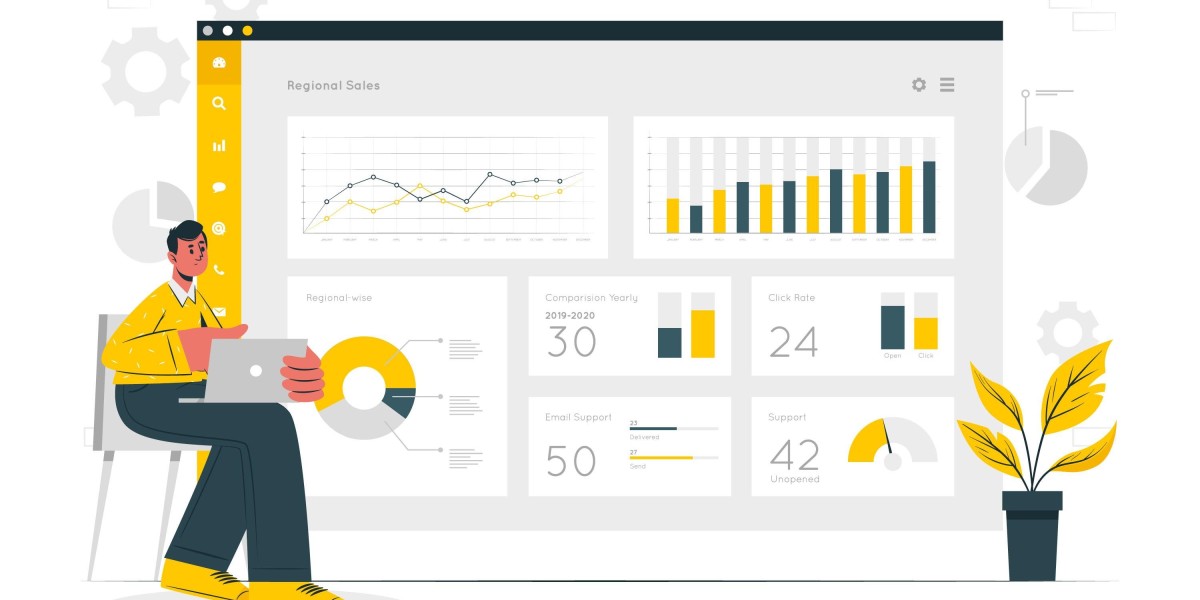What are Website Analytics?
Web analytics refers to the collection, measurement, analysis, and reporting of data related to website usage and visitor behavior. It involves tracking and examining various metrics and statistics to understand how users interact with a website or web application. The primary objective of web analytics is to gain insights into user behavior and website performance in order to optimize and improve the online presence.
Web analytics typically involves the use of specialized tools or software that can track and record data such as the number of website visitors, their geographical locations, the pages they visit, the time they spend on each page, the actions they take (e.g., clicks, downloads, purchases), and other relevant information. This data is then analyzed to uncover patterns, trends, and areas for improvement.
The insights derived from web analytics can be used to make informed decisions and implement effective strategies to enhance user experience, increase website traffic, improve conversion rates, and achieve specific business goals. It can help businesses understand which marketing campaigns are generating the most traffic, identify the most popular content or products, optimize website design and navigation, and identify potential issues or bottlenecks in the user journey.
Benefits of Using Website Analytics
There Are Many Benefits to Using Website Analytics, Including:
· Tracking website performance: Website analytics can help you track how many visitors your website receives, where they come from, and what pages they visit. This information can be used to identify areas where your website is performing well and areas where it could be improved.
· Identifying trends: Website analytics can help you identify trends in website traffic. This information can be used to make predictions about future website traffic and to adjust your marketing campaigns accordingly.
· Making informed decisions: Website analytics company and their services can help you make informed decisions about website content, marketing campaigns, and other aspects of online business. For example, you can use website analytics to determine which pages on your website are most popular, which keywords are driving traffic to your website, and which marketing campaigns are most effective.
How to Use Website Analytics to Grow Your Business?
· Set goals: Before you start using website analytics, it's important to set goals for your website. What do you want to achieve with your website? Do you want to increase website traffic, generate leads, or make sales? Once you know your goals, you can use website analytics to track your progress and make adjustments as needed.
· Track the right metrics: Not all website metrics are created equal. Some metrics are more important than others for tracking website performance and making informed decisions. For example, if you're trying to increase website traffic, you'll want to track metrics like page views, unique visitors, and bounce rate.
· Analyze your data: Once you've collected data about your website traffic, you need to analyze it. This means looking for trends, patterns, and insights that can help you improve your website. For example, you might find that a certain page on your website is consistently generating a lot of traffic. This could be a sign that you need to create more content like that page.
· Take action: The final step is to take action based on your analysis. This might mean making changes to your website content, marketing campaigns, or other aspects of your online business. For example, if you find that your website is not generating enough leads, you might need to adjust your marketing campaigns to target a different audience.
Tips for Using Website Analytics to Grow Your Business
· Use a variety of tools: There are a number of different web analytics tools available, so you can choose one that fits your needs. Some popular tools include Google Analytics, Adobe Analytics, and Kissmetrics.
· Track long-term trends: Don't just focus on the data from the past few days or weeks. Look at the long-term trends to see how your website is performing over time.
· Compare your data to your competitors: See how your website traffic compares to your competitors. This can help you identify areas where you need to improve.
· Use website analytics to test different ideas: Use website analytics to test different ideas for your website. For example, you could test different headlines, different calls to action, or different marketing campaigns.
Conclusion
Web analytics is a powerful tool that can help you grow your business. By tracking website performance, identifying trends, and making informed decisions, you can improve your website and increase your online success.
If you're not already using website analytics, I encourage you to start today. There are a number of free and paid website analytics tools available, so you can find one that fits your budget and needs. With a little effort, you can use website analytics to grow your business and achieve your online goals with the help of a good website analytics consultant if required.
 " class="wow_main_float_head_img">
" class="wow_main_float_head_img">







